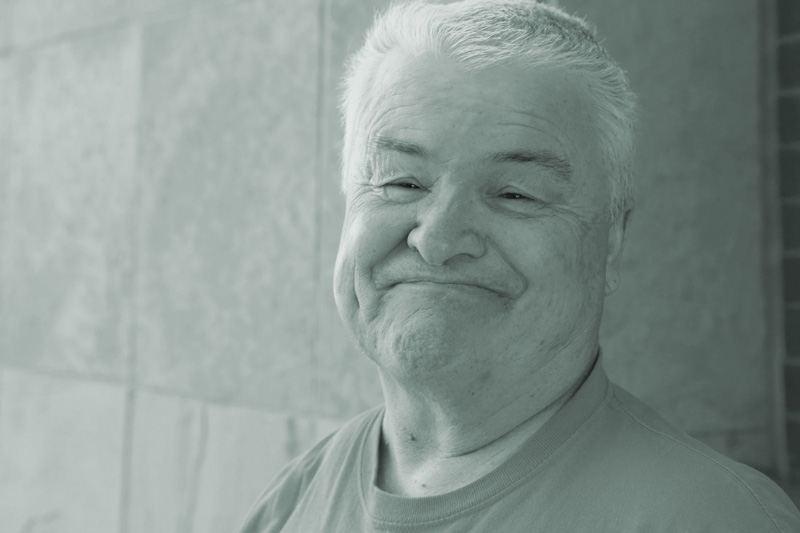Dementia and Intellectual Disabilities
Dementia and Intellectual Disabilities
Written by Craig Escudé, MD FAAFP, FAADM, September 2023.

Dementia can be a pretty scary thing for anyone. For people with disabilities, changes or a decline in cognitive functioning can be quite challenging to recognize, especially in people who do not use words to communicate.
When we are looking to diagnose dementia, clinicians frequently use tests like a mental status exam where a person is asked to remember lists of items, draw a picture of a clock with numbers on it, and recall current events like naming the current president and the city and state where they live.
For some with disabilities, questions like these may not have ever been able to be successfully answered due to a different baseline of knowledge and comprehension.
So how, then, can we attempt to accurately diagnose dementia in people with differing levels of cognitive baseline functioning?
One way to do this is to look at changes in functional status over time. There is a tool developed by the National Task Group (NTG) on Intellectual Disabilities and Dementia Practices called the Early Detection and Screen for Dementia (EDSD) (i), which is specifically geared to help assess levels of functional decline over time in people with intellectual and developmental disabilities. This tool is designed to be used by family members and other supporters. Looking at serial measurements annually or every six months can help determine if a person is having a functional decline, but does this mean that the person definitely has dementia? No, it does not. Ruling out other causes for symptoms consistent with dementia is also very important. Mental health conditions, untreated sleep apnea, metabolic toxicity including alcohol, medication side effects, vitamin deficiencies, brain tumors, and thyroid, kidney, and liver disease can all present with signs resembling dementia. However, having the type of information that the EDSD can provide can be very helpful to a clinician in determining whether or not a person has evidence of dementia. When we see changes in cognition, we should never hastily conclude that it is due to dementia but instead look for treatable underlying causes such as those mentioned above. Working with a clinician knowledgeable about dementia in people with disabilities is advisable.
People with Down Syndrome are at a much higher risk of Alzheimer’s type dementia. People with Down Syndrome have an extra copy of chromosome 21, which also carries a gene responsible for producing a protein called amyloid precursor protein. Too much buildup of this protein in the brain leads to beta-amyloid plaques, which are implicated as a significant cause of Alzheimer’s disease. It is estimated that 50% or more of people with Down Syndrome will develop Alzheimer’s, and they are more likely to develop it earlier than those without Down Syndrome. It’s recommended that screening for dementia using a tool like the EDSD be started at age 40.
There have been significant advances in research on Alzheimer’s disease, including the development of blood tests and more sensitive brain scans that can help diagnose Alzheimer’s dementia. While these tests are currently not available everywhere, soon, we should have widespread availability of blood testing to diagnose the condition. There have also been advances in medication treatment options for dementia, and current trials are promising for the availability of effective treatment options in the near future. As with any new treatment, caution is warranted before starting medications, and one should always weigh the risk and benefits of treatment and include frank discussions with the clinician, the person for whom treatment is being considered, and the person’s support network to help ensure that the best decision is made for each individual person.
People who are supporting those with dementia also need support. The NTG also has a Family Support Committee. Activities of the committee include providing written and public comments on federal issues related to dementia, an inclusive, monthly, national online support group for family caregivers, and participating in a Facebook group for caregivers and professionals supporting individuals with Down Syndrome and Alzheimer’s disease. You can learn more about the NTG Family Support Committee by visiting www.the-ntg.org/family-caregivers.
Photo Credit: 2024 Rick Guidotti,Positive Exposure. All Rights Reserved.
References:
[i] National Task Group on Intellectual Disabilities and Dementia practices. NTG – Early Detection and Screen for Dementia. (NTG-EDSD)
[ii] National Institute on Aging. 2020. Alzheimer’s Disease in People With Down Syndrome


